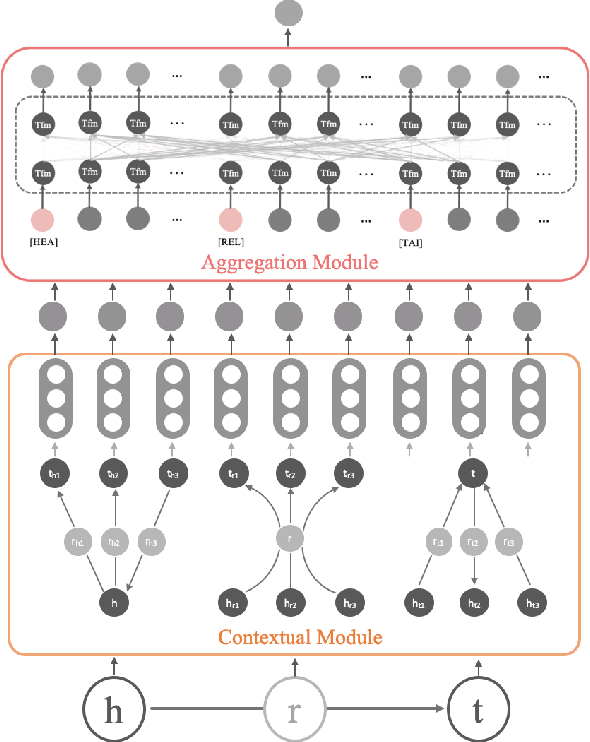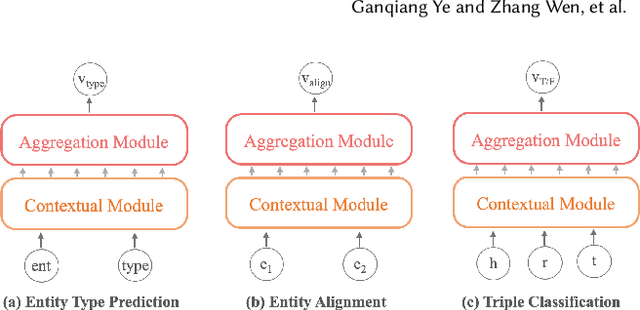Chi Man Wong
Beyond Completion: A Foundation Model for General Knowledge Graph Reasoning
May 28, 2025Abstract:In natural language processing (NLP) and computer vision (CV), the successful application of foundation models across diverse tasks has demonstrated their remarkable potential. However, despite the rich structural and textual information embedded in knowledge graphs (KGs), existing research of foundation model for KG has primarily focused on their structural aspects, with most efforts restricted to in-KG tasks (e.g., knowledge graph completion, KGC). This limitation has hindered progress in addressing more challenging out-of-KG tasks. In this paper, we introduce MERRY, a foundation model for general knowledge graph reasoning, and investigate its performance across two task categories: in-KG reasoning tasks (e.g., KGC) and out-of-KG tasks (e.g., KG question answering, KGQA). We not only utilize the structural information, but also the textual information in KGs. Specifically, we propose a multi-perspective Conditional Message Passing (CMP) encoding architecture to bridge the gap between textual and structural modalities, enabling their seamless integration. Additionally, we introduce a dynamic residual fusion module to selectively retain relevant textual information and a flexible edge scoring mechanism to adapt to diverse downstream tasks. Comprehensive evaluations on 28 datasets demonstrate that MERRY outperforms existing baselines in most scenarios, showcasing strong reasoning capabilities within KGs and excellent generalization to out-of-KG tasks such as KGQA.
Improving Knowledge Graph Representation Learning by Structure Contextual Pre-training
Dec 08, 2021



Abstract:Representation learning models for Knowledge Graphs (KG) have proven to be effective in encoding structural information and performing reasoning over KGs. In this paper, we propose a novel pre-training-then-fine-tuning framework for knowledge graph representation learning, in which a KG model is firstly pre-trained with triple classification task, followed by discriminative fine-tuning on specific downstream tasks such as entity type prediction and entity alignment. Drawing on the general ideas of learning deep contextualized word representations in typical pre-trained language models, we propose SCoP to learn pre-trained KG representations with structural and contextual triples of the target triple encoded. Experimental results demonstrate that fine-tuning SCoP not only outperforms results of baselines on a portfolio of downstream tasks but also avoids tedious task-specific model design and parameter training.
 Add to Chrome
Add to Chrome Add to Firefox
Add to Firefox Add to Edge
Add to Edge